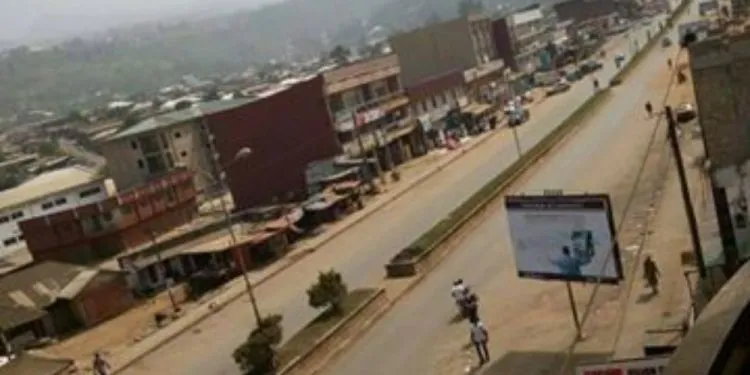Today is Monday in Cameroon, in Bamenda like other parts of the North West and South West Regions in the country, it is a civil disobedient day otherwise known as ‘ghost town’, a practice which has become a tradition here since 2017.
The ghost town phenomenon which was first pronounced in January 2017 has become a normal way of life for residents in Bamenda, Chief town of the North West Region where it was first declared on January 9, 2017, by members of the outlawed consortium of Anglophone civil society.
Today, Monday ghost towns have been transformed into catch-up days for socio-sporting activities. Many find it more convenient now in this part of the country to hang out with friends, attend ‘‘njangis’’ and go for sports.
Mokum Thomas, a bar owner in Sissia Quarter in Bamenda III Subdivision attests that it is the day he makes the highest sales.
“On normal days, I sell between 15,000 to 20,000FCFA. But on Mondays, I sell at least five times the amount sold on regular days. So when it’s weekend, I stock for sales on Monday,” he told MMI.
Other groups of people in Bamenda neighborhoods use the day to execute community works such as cleaning of the quarter, road works, and community water projects.
While some people use this day to relax at home from tight weekly schedules, it is an opportunity for others to pay visits to their loved ones and connect with distant relations on long phone calls.
In the university community in Bambili, students contribute money to organize barbeque parties, birthday replays. Such events hold in student hostels with others holding in beer parlors behind closed doors.
Sampling the opinions of city-dwellers on their attachment to this day, the views are unanimous that Monday be made an official weekend day.
To John-Clem, “…it is a day I adore so much, I get the chance to relax on the lawn tennis court, have fun and enjoy myself. I have adapted this day for leisure. It may be hard for me to treat Monday as a working day”.
Pa Atanatious, a retired teacher, another Bamenda inhabitant on his part suggests that the government, at the end of the crisis, should shift working days to run from Tuesday to Saturday and civil servants have Sunday and Monday for weekends.
“This would serve as an appeasement and concession measure by the government,” Pa Atanatious adds.
Many institutions including churches have readapted their activities in this part of the country to suit the reality of this day. Catholic faithful in Bambili, for instance, now hold gospel sharing in “small Christian communities” on Mondays. Hitherto held on Thursdays, choir practice and doctrine classes have also been moved to Mondays for the convenience of all.
Opposed to this reality at community levels, government officials and the Bamenda City Council Mayor have made several attempts to make Monday ghost towns working days but their efforts have remained futile as denizens still



